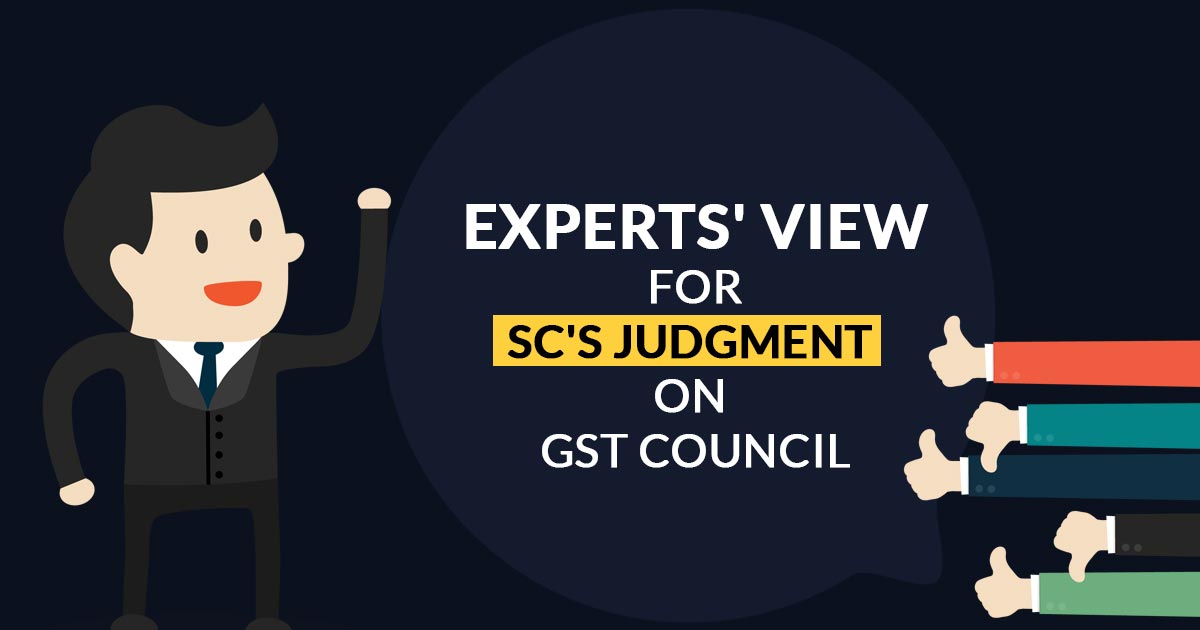
The Supreme Court mentioned that a suggestion of GST officials would not restrict centres and states and that the council as a body holds influential values. A bench led by Justice DY Chandrachud ruled that the Central Government and States have concurrent powers to legislate on Goods and Service Tax (GST). giving relief to importers, the Supreme Court (SC) ruling mentioned that the GST council on ocean freight furnished for the import of goods is unconstitutional. Indeed, the Indian importers who furnished the tax would be subjected to a refund.
Kerala Finance Minister (K.N. Balagopal)
My initial understanding of the verdict is that the same is a positive development. And we need to read the full text subsequently. Also, the GST law, from its inception itself, is with respect to the interest of federalism. The same order beneath the compliance of cooperative federalism mentioned the freedom of the states in taxation which was essential,
Deloitte India Partner (Mahesh Jaising)
The decision of the supreme court is a welcome judgment for the industry as it reduces the GST levy on freight made by Indian importers for the goods imported. The same is essential to note that the court has ruled that the GST official decisions are a suggestion only and poses a persuasive value.
SR Patnaik, Partner and Head – Taxation, Cyril Amarchand Mangaldas
Patnaik stated that the same is a welcome decision as the same tells about the authority and power of parliament and the state legislative assemblies vis-à-vis the GST Council. “It clarifies that GST Council is an informal body whose inputs should be taken into account, but it does not have a legislative power and laws have to be legislated by the bodies who are empowered to do so i.e. the Parliament and the state legislative assemblies, Patnaik said.”
The supreme court sees that the GST official suggestions secure a persuasive value. The courts will need to be more proactive in the judicial review of GST legislation with the Supreme court mentioning that the GST council decision is not law and they are only a suggestion. This imposes litigations challenging any discrepancy or unfavourable GST Council decisions.
Bank of Baroda Chief Economist (Madan Sabnavis)
He wants that the same decision by SC would make the decision-making more collaborative but attaining the decisions would consume much time when the states pose string views. “In fact, even tweaking rates for products will become more challenging. We have been speaking of GST on fuel. Here states may not like to relent as they have differential rates, Sabnavis articulated.”
Well-known Economist (Arun Kumar)
“GST council was supposed to decide rates and the structure of the tax, now some states will begin to say that this is not applicable to us and this will destroy the idea of one nation one tax. The entire reason for having GST would be undermined. It will enable the states to do what they like but that will be against the idea of GST, he added.”
Rajat Bose, Partner of Shardul Amarchand Mangaldas & Co
Supreme court mentioned that as it clearly described the riles of GST officials, Centre and State and their interplay in GST compliance. GST official is a constitutional body whose role is to suggest GST problems. To accept the same recommendations and pass enough changes in the law is purely the domain of the Central and State legislatures.









